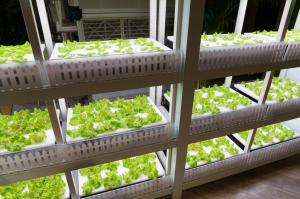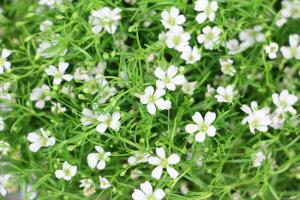Is English Ivy a Good House Plant?
English Ivy, also known as Hedera Helix, is a popular house plant due to its unique appearance and low maintenance needs. However, some people have concerns about having English Ivy in their homes. In this article, we will explore the advantages and disadvantages of having English Ivy as a house plant.
Advantages of English Ivy
English Ivy has several advantages as a house plant. Firstly, it is a hardy plant that can thrive in a variety of lighting conditions. It can be grown in both bright, direct sunlight and low light conditions. This makes it a great option for people who have limited natural light in their homes. Additionally, English Ivy has air-purifying properties. It can absorb formaldehyde, benzene, and other harmful chemicals from the air, making it a great choice for those who are concerned about air quality in their homes.
Another advantage of English Ivy is that it can be trained to climb on walls, trellises, or other structures. This makes it an ideal plant for those who want to add a touch of greenery to their indoor spaces. English Ivy can also be trimmed and pruned to control its growth, making it a versatile and adaptable plant.
Disadvantages of English Ivy
Despite its many advantages, English Ivy also has some disadvantages as a house plant. Firstly, it can be toxic to pets and children if ingested. The plant contains a substance called glycoside hederin, which can cause vomiting, diarrhea, and other symptoms when ingested. Therefore, it is important to keep English Ivy out of reach of pets and children.
Another disadvantage of English Ivy is that it can be invasive if planted outdoors. The plant can spread rapidly and take over other plants in the area. This can cause ecological imbalances and harm to the local ecosystem. Therefore, it is important to be careful when planting English Ivy outdoors and to manage its growth carefully.
Caring for English Ivy
To ensure that English Ivy stays healthy and thriving as a house plant, it requires some basic care. Firstly, the plant should be planted in a well-draining potting mix that is moist but not waterlogged. English Ivy also prefers high humidity, so it can benefit from regular misting or a humidifier. You should also ensure that the plant is provided with appropriate lighting based on its specific requirements.
To prevent the plant from becoming too invasive, it is important to prune it regularly. This will help to control its growth and maintain its shape. Additionally, English Ivy should be fertilized every two to three months with a balanced fertilizer. You should also be sure to check the plant regularly for pests, such as spider mites or mealybugs, and take appropriate steps to treat any infestations that occur.
Conclusion
Overall, English Ivy can be a great house plant for those who are looking for a low maintenance plant with air-purifying properties. However, it is important to be aware of its toxic properties and invasive tendencies. By providing appropriate care, you can ensure that English Ivy remains a healthy and attractive addition to your home.

 how many times do yo...
how many times do yo... how many planted tre...
how many planted tre... how many pine trees ...
how many pine trees ... how many pecan trees...
how many pecan trees... how many plants comp...
how many plants comp... how many plants can ...
how many plants can ... how many plants and ...
how many plants and ... how many pepper plan...
how many pepper plan...































